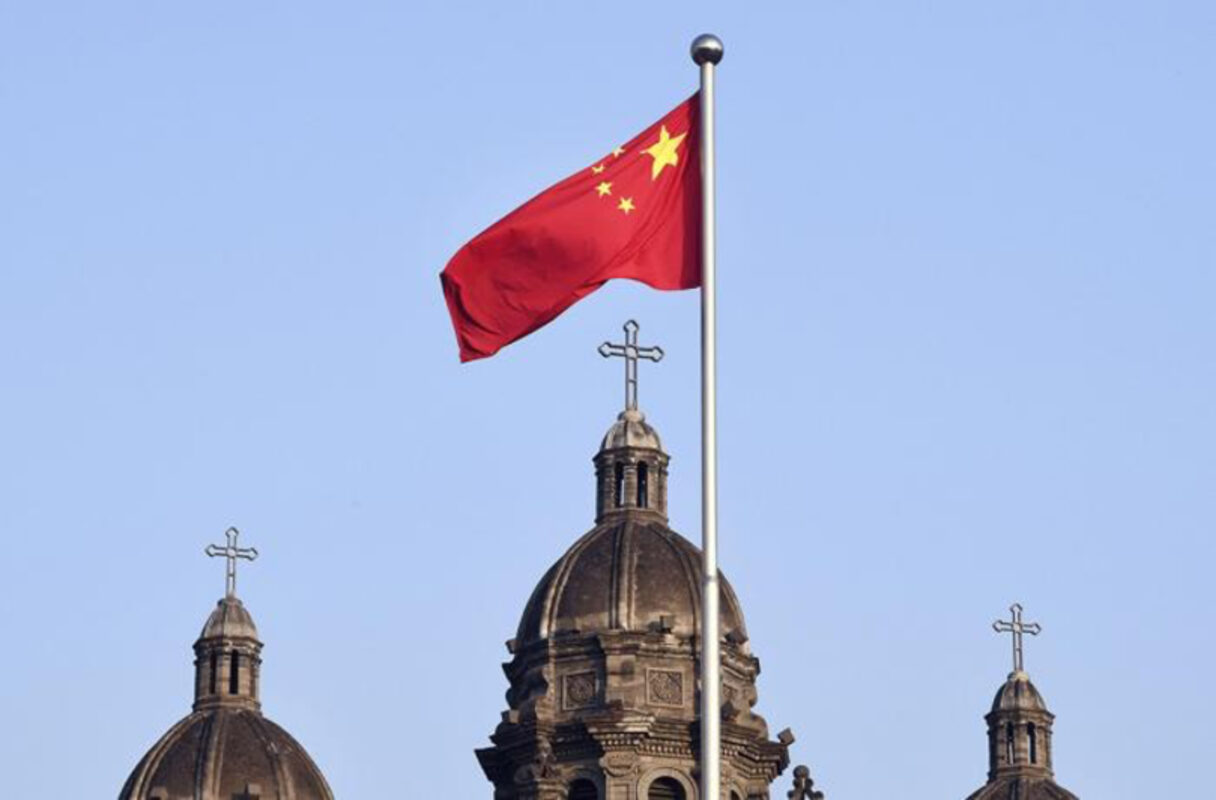CHINA – VATICAN
Sino-Vatican agreement after two years: flags and monitoring (I)
A few months before the expiration of the Provisional Agreement on appointing new bishops, lay people, priests and bishops wonder about the effects it has had on the life of Christian communities in China. The Vatican is hoping to renew the agreement; China is likely to do the same if for no other reason than to use it against the US. The non-ideological question about religious freedom remains.
07/16/2020, 13.26

Rome (AsiaNews) – The Provisional Agreement signed by the Vatican and the People’s Republic of China two years ago is set to expire on 21 September. At the time,“optimists” praised this agreement as “historic”and believed that a Copernican revolution would occur in the life of the Church in China. Even today, the “enthusiasts by default”, very few in fact and always the same people, are pushing for a renewal of the deal. Some people linked in some way to the Vatican have been pushing for this.
So far China has said nothing. We must assume that its approval to continue the agreement is almost certain, if only to embarrass the United States. In fact, the Provisional Agreement, which deals with the appointment of new Chinese bishops, a matter that touches the Church and religious freedom, has been caught in the US-China row and what people think depends on who they believe should be the future superpower that will dominate the world.
To avoid an ideological approach, AsiaNewshas surveyed bishops, priests and lay people in China, asking them to say how life has changed in their communities and how they have lived their faith since the famous Agreement. We plan to publish their testimonials as they arrive to our office.
Today, we present two lay people: Shanghai John and Maria, from northern China. The former expresses embarrassment at seeing the Chinese flag on Christian buildings. This is now compulsory, as is hangingPresident Xi Jinping’s picture. The latter describes how communities are monitored, noting that religious education for people under 18 is banned in violation of the Chinese constitution.
Both reveal the painful issue of religious freedom in China. Unfortunately, among diplomats and “enthusiasts by default”, even in the Vatican, there is little talk of religious freedom in China, perhaps because Trump made it part of his election campaign. But before being an ideological tool, religious freedom is an important element in the social doctrine of the Church. (B.C.)
I am just a layperson, so the Sino-Vatican agreement does not really affect me. My life of faith has not changed much. Of course, I heard some negative stories from elsewhere. For myself, apart from my personal religious life, when I saw the national flag hanging outside the church for the first time, I was still a little shocked.
There is nothing wrong with hanging the national flag. But in order to assert the slogan “love the country, love the Church” (‘Ai guo, ai jiao’ is the slogan of the Patriotic Association, and is also used by the government-recognised Council of Chinese Bishops), would it not be better to also show at the same time the flag of faith, for example that of the Vatican or that of the parish, ?
Every now and then I go on a pilgrimage abroad and see that in some countries the national flag of that country and that of the Vatican are displayed in churches. I love my country and I love my Church. If in the future I could see the national flag and that of the Vatican or the parish flying together, I think that would be a very nice thing.
Shanghai John
A few years ago, when crosses in Zhejiang were removed, I had already felt that a crisis was approaching and that sooner or later this land would be swept by it. Starting in 2018, parishes in Henan province began to live in anxiety. By hook or by crook, their goal [the authorities’] was to make us obedient to their words.
We have made several compromises, accepted every request however difficult, devised solutions and continued to compromise, not knowing when we would have crossed our limit of faith. The external walls of the church are covered with many rules about Chinese culture and church administration; the flag flies on the bell tower, next to the cross, as if to replace the light of the cross. Churches have just reopened after the pandemic.
[Government officials] have already come many times on Sunday, on the pretext of monitoring COVID-19, imposing many limitations, saying that minors cannot enter the church, that registrations of the faithful admitted to the church are not complete, that spacing lines must be drawn on the floor, that spacing signs must be hung, etc., all this with repeated threats of closure.As for the Agreement, I want to believe that the Pope wants to fight for us, to guarantee us a little more room. But all this does not stop them (government officials) from seeking to control everything. I don’t know if the situation would have been worse without the agreement. Perhaps it would have. But one thing is certain: With the Agreement, the situation has not improved. I never thought that the Pope or any other Church person could understand and take on the burden we have to endure, but I am sure that with the prayers of the whole Church, Jesus Christ will save us.
Maria, northern China


 ENG
ENG